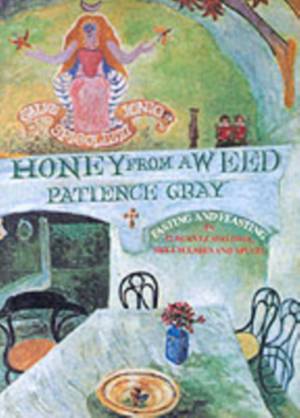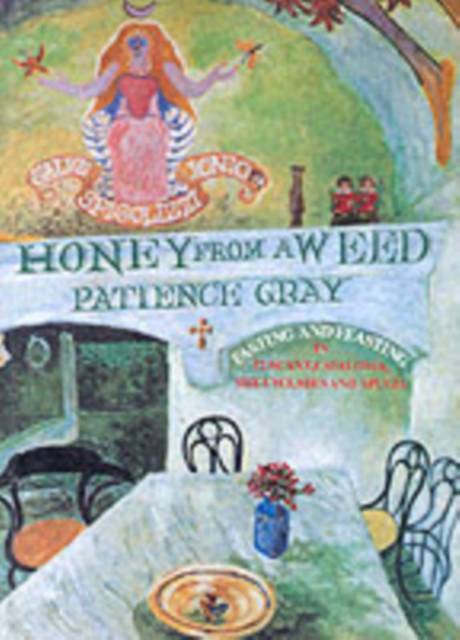
- Retrait gratuit dans votre magasin Club
- 7.000.000 titres dans notre catalogue
- Payer en toute sécurité
- Toujours un magasin près de chez vous
- Retrait gratuit dans votre magasin Club
- 7.000.0000 titres dans notre catalogue
- Payer en toute sécurité
- Toujours un magasin près de chez vous
Honey from a Weed
Fasting and Feasting in Tuscany, Catalonia, the Cyclades and Apulia
Patience Gray
Livre broché | Anglais
29,95 €
+ 59 points
Description
Winner of a special special award by the Andre Simon Book Prize committee in 1987 This book is perhaps the jewel in the Prospect Books' crown. Within a few months of its first appearance in 1986 it was hailed as a modern classic. Fiona MacCarthy wrote in The Times that, 'the book is a large and grandiose life history, a passionate narrative of extremes of experience.' Angela Carter remarked that 'it was less a cookery book that a summing-up of the genre of the late-modern British cookery book.' The work has attracted a cult following in the United States, where passages have been read out at great length on the radio; and it has been anthologized by Paul Levy in The Penguin Book of Food and Drink. Currently, we publish the book in paperback, with the original drawings by Corinna Sargood and the same text in the same generous format of the original hardback. The beautiful original cover features, the Mellona, the Roman goddess of honey from which the book takes its title. Although more than a cookery book - being a musing on a life lived on the shores of the Mediterranean, particularly wherever marble suitable for sculpture can be found - it contains many vibrant and useful recipes, making it a bible for lover of Mediterranean food. Fish, wild plants, game and tomatoes are just some of the foodstuffs explored and she anticipated the contemporary interest in wild and foraged foods as noted in an article about Gray that appeared in the Guardian in 2017. If you want to know how to marinate sardines or what to do with cuttlefish, Gray will tell you. But it is the bitter weeds - among them comfrey, sorrel, broomrape, fat-hen and tassel hyacinth - on which Gray and Mommens feasted every other night that she eulogises, making these modest, wild plants sound both delicious and life-giving: a kind of holy medicine. Patience Gray was first known for the 1950s classic, Plats du Jour. She shared her life with sculptor, Norman Mommens, whose appetite for marble and sedimentary rocks took them to Tuscany, Catalonia, the Cyclades (Naxos) and Apulia. These are the places which in turn inspired this rhapsodic text. Everywhere, she learned from the country people whose way of life she shared, adopting their methods of growing, cooking and conserving the staple foods of the Mediterranean. She described the rustic foods and dishes with feeling and fidelity, writing from the inside and with a deep sense of the history and continuity of Mediterranean ways.
Spécifications
Parties prenantes
- Auteur(s) :
- Editeur:
Contenu
- Nombre de pages :
- 375
- Langue:
- Anglais
Caractéristiques
- EAN:
- 9781903018200
- Date de parution :
- 10-01-09
- Format:
- Livre broché
- Format numérique:
- Trade paperback (VS)
- Dimensions :
- 174 mm x 248 mm
- Poids :
- 734 g

Les avis
Nous publions uniquement les avis qui respectent les conditions requises. Consultez nos conditions pour les avis.






